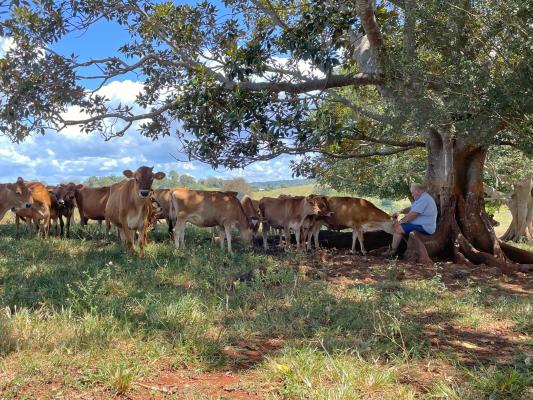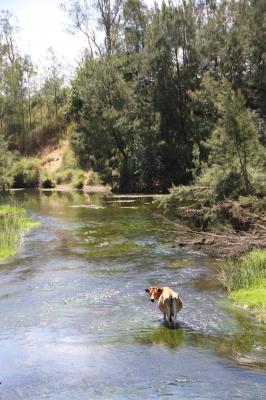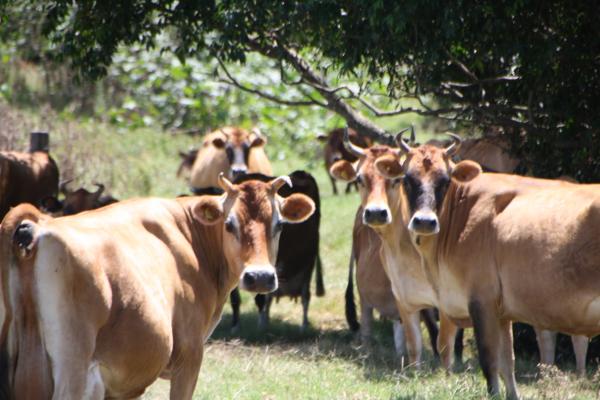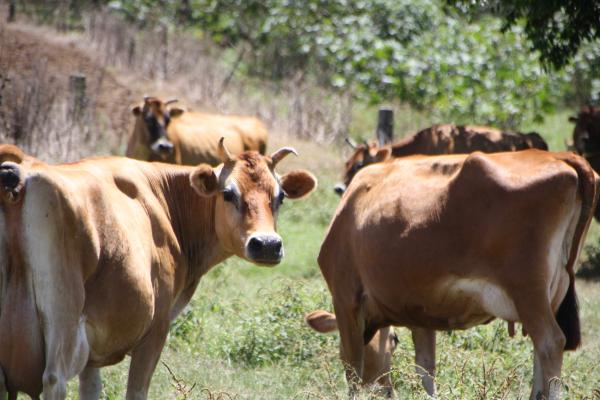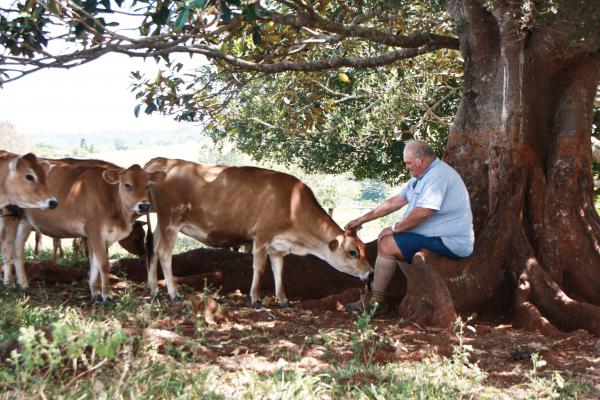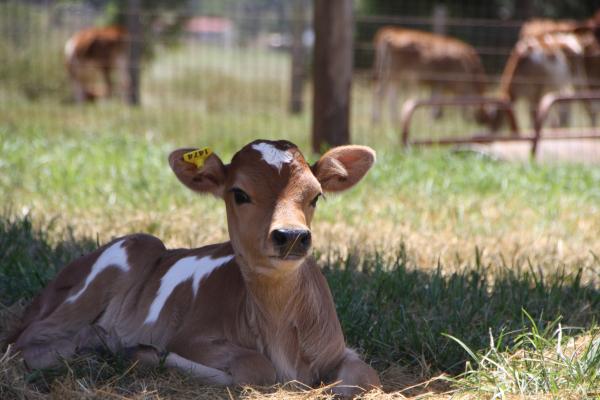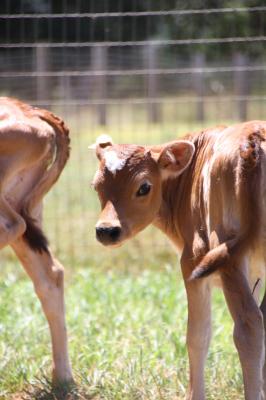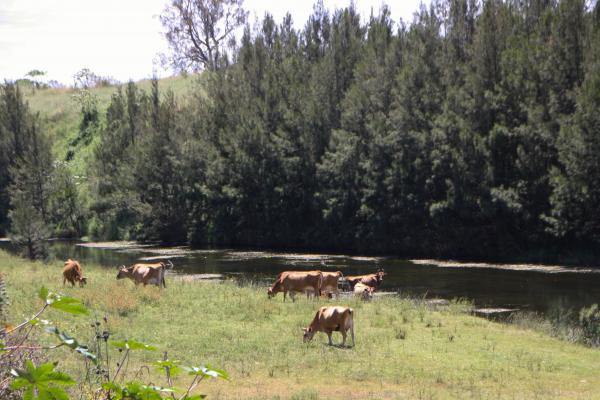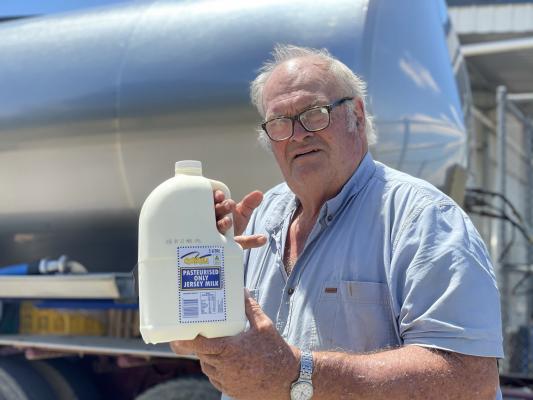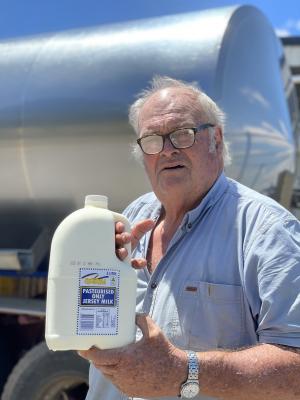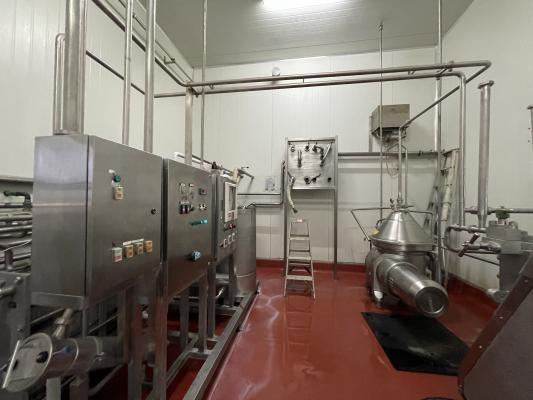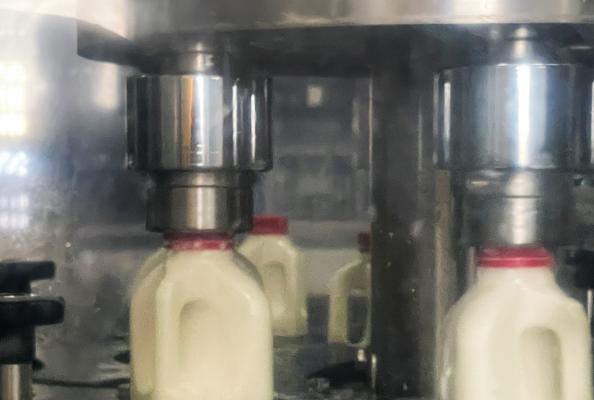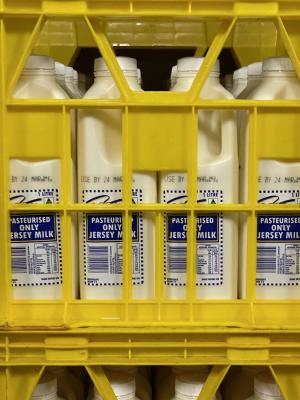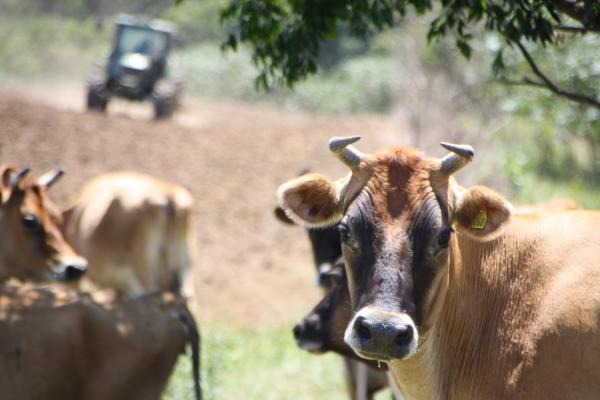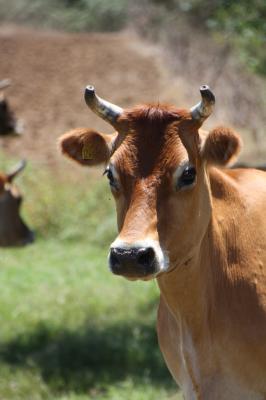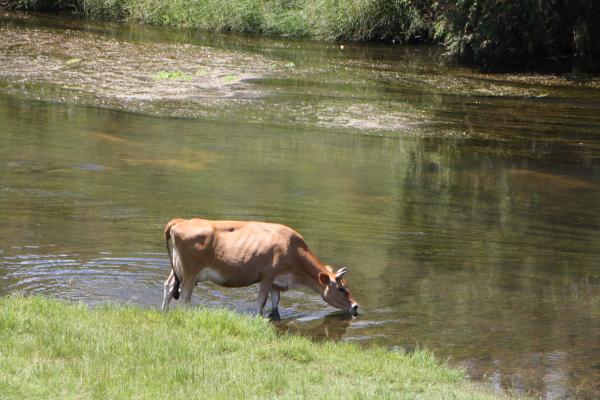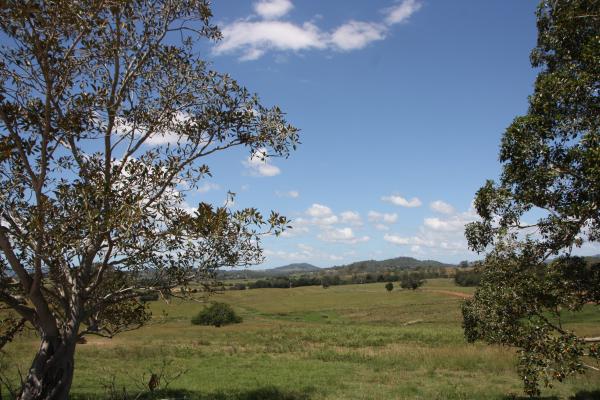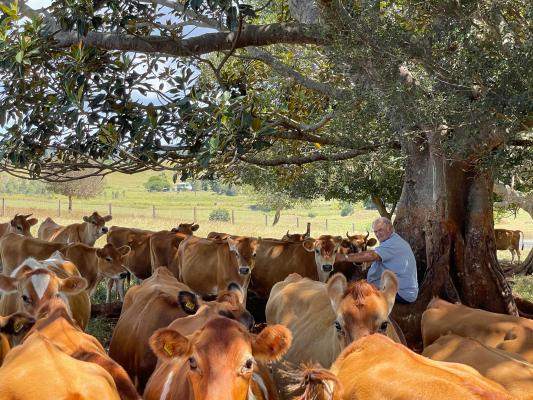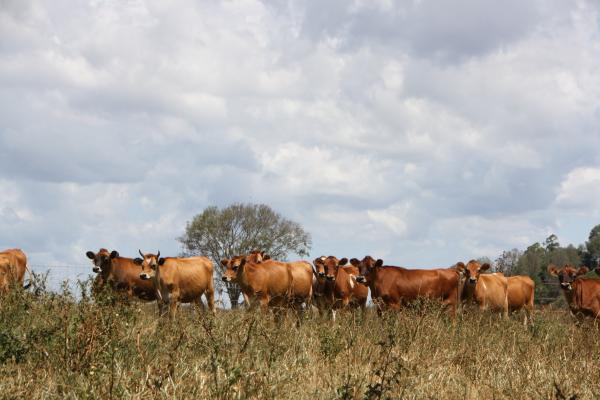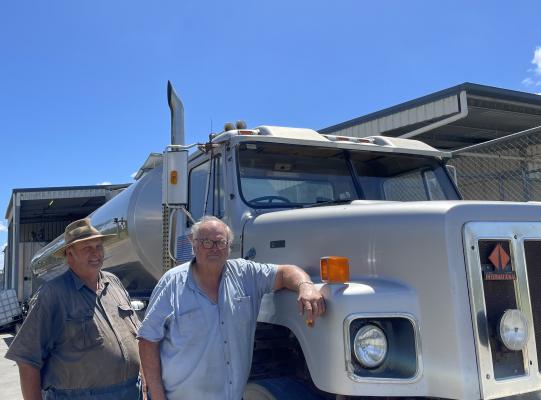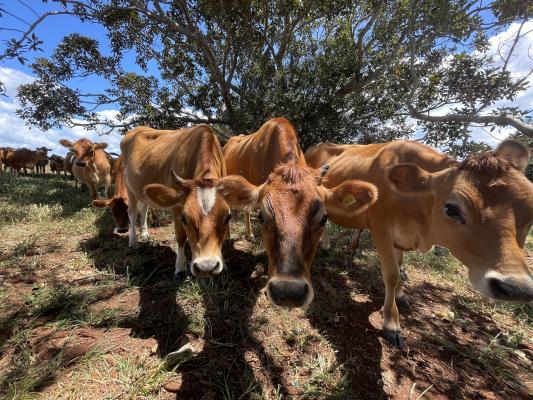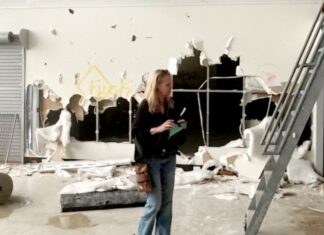Milk. It’s something so simple, yet surprisingly complex to produce.
Fresh milk … there is nothing quite as uncomplicated when it comes to a food.
It’s something we can easily take for granted.
Most know that dairy milk comes from a farm.
Yet how many know that it is one of the most intricate processes to get it from paddock to table?
Richard Schroder has been doing just that for most of his life.
And he cannot think of anything he would rather be doing.
Getting the best quality milk possible from the farm to the customers.
Richard has been processing Cooloola Milk at the Dagun factory for 21 years. As such he is the longest-running independent processor in Australia under the current legislation.
We are sitting in the office of the factory, overlooking the dairy farms of the Mary Valley. It’s pretty much been his home.
He just loves his cows. Even if he retired he would probably still be doing the same thing, just on a smaller scale.
Such as feeding the heifers from under a huge, spreading tree near his house.
It’s where he is happiest … sitting on the gnarled tree roots, surrounded by the calves.
In a career that has had as many twists and turns as the tree roots, Richard has gone from being a baker to milk tanker driver to milk producer on a large scale.
He learnt how to handle a business well from a former boss, Bob Bevington at Cooroy Bakery – treat your staff with trust and respect, let them know they can always ask you for advice.
It’s a beautiful morning in the Mary Valley. There has not been as much summer rain as Richard would like but that’s what happens in the Valley … it can be patchy.
As he talks me through the many different aspects there are to milk production you just wonder how many supermarket shoppers are aware of what it takes to get the bottles or cartons to the shelf.
Having grown up on a farm I saw first-hand what was needed to get the milk to the farm gate. Yet the processing side of things adds so many more layers – especially when distribution is added into the mix.
The Schroder family started dairying when Richard’s grandfather bought a place at Kureelpa, on the Blackall Range.
His father Ted Schroder and his uncle Jack carted the cans to North Coast Milk, as it was those days, when it was at Duck Hole Creek in Caloundra.
When the factory moved to Nambour they carted milk to that … so much went to the factory as quota and the balance was separated as cream and some sent to Eumundi.
Eventually they busted the farm up into two properties of about 40 acres.
It must have been about 1970 when Ted Schroder bought a property at Dulong, under the rural reconstruction scheme.
Before that Richard was working in the Windmill Bakery at Nambour Heights with Jack Vermuellen.
He also did a stint at Woombye Bakery but had worked on earth moving in the late 1960s at coal mines in Blackwater.
The big strike brought work to a stop so he came back to Dulong.
“Dad got crook. It was from World War Two.
“He was in New Guinea and suffered from illnesses such as malaria.
“He was very accurate with a rifle and got the rank of gunner.
“They were stationed overlooking Port Moresby.
“He thought that was a good job until he realised he was the target.”
His father had built up the cows enough while they were on a lease farm.
Richard describes the heard as “a league of nations … illawarra and fresians. Some ayreshires as well.”
Yet that’s not the start of the family story.
Richard’s grandfather was born in Norway, at Kragero to the south-west of Oslo.
His grandmother was born in Elverum, to the north east of the capital.
That was the name of their stud at Kureelpa and then at Dagun.
They had a rubber plantation in the Solomon Islands before they came to Australia.
His great, great grandfathers had sailing boats and they were trading in the Pacific.
They used to take trade from the UK to Argentine and take meat back. Pine logs were shipped out of Scandinavia to the UK.
One thing led to another and family went to all corners of the world.
Yet they did not make the transition from sail to steam quickly enough and the shipping company was left to founder.
Richard’s mother’s side of the family were from Australia, and her father became a Cobb and Co coach driver.
Richard can remember milking the cows on the farm at Dulong and watching the sun come up over the ocean.
“I never really noticed it until we were leaving.
“I would have been aged about 20-21.
“When we sold Kureelpa, we bought the place at Dagun – where the dairy is today.
“That was in August 1973, then we had the ’74 flood.”
With his brother Neil, they milked at Dagun while their father still had the lease farm at Nambour.
They brought the cows with them.
When their father got out of army he spent his pay in foundation stock which they still have as bloodlines today.
They concentrate on jerseys as they are more hardy, more suited to the country, and for the quality of their milk.
And they are beautiful cows with wonderful personalities.
It was a closed herd for years, then he used artificial insemination to tap into different bloodlines.
Not long after setting up at Dagun the price of milk crashed so Richard went working at Cooroy Bakery.
“It was good money. We worked long hours but had a top bloke to work for – Bob Bevington.
“When employing here I model my things on what he did.
“He worked with you but left you alone. If there was a problem he would come to help sort it out.
“The staff have to be able to think for themselves and you need to have confidence in them being able to come to decisions.
“They might see or do things a bit differently but as long as same end result is achieved I’m happy.”
As someone who is happy to lead by example, Richard has had staff at the factory for 19, 20 years.
In 1983 he had enough money to buy a milk tanker run with a contractor. It was Wide Bay Dairies in those days.
“That put us on top.
“Dad and Neil milked. I would give them a hand at times with planting feed crops and the like but Neil did most of it.
“It was the same with the bakery. I would work at night then help on the farm in the day.”
After 15 years with the milk tankers Richard had a small fleet by the end of it.
A series of amalgamations saw Wide Bay become Queensland Farmers then QUD at Toowoomba.
In turn they amalgamated with Caboolture to become Queensco Dairy Foods, then with Dairy Farmers in New South Wales.
In 1998 Richard sold the tankers as he had built the dairy about 400m from where the factory now stands … that’s where Cooloola Milk started.
After talking with people in Victoria he knew deregulation was going to happen.
“They felt they were being disadvantaged by levies,” he said.
“I figured that we used to pick up Allens Dairy at Chatsworth and when they went out of business then we could see a market there for us.
“People liked their milk.
“Allens did local deliveries. I was impressed by their quality and felt we could do the same.
“I thought that market would be available to us if nothing else.
“In all honesty, I did not expect it to go as far as it did.
“We were always adding bits to the dairy so I asked if we could buy this piece of land with a view to putting a factory here.
“The owner was still operating the farm and we agreed to take it over in 12 months. He had cattle, so it gave them time to get organised.”
Richard figured they did not need the big companies as he had been delivering milk for 15 years.
Then it came about you had to tender for a job you were already doing.
So he decided to do it himself.
“We had our own herd, and had seen at other factories what was needed and what to do … and what we didn’t know I knew where to get the answer.
“I got to know a process engineer and he put it together.
“We built the equipment on site … pasteuriser, bottle fillers.
“The big companies all thought it was a bit of a joke … not to worry about what plant and equipment they sold me.
“Once I started you couldn’t buy anything … they didn’t want to see it go anywhere else.
“You had to give an undertaking it would be used overseas.”
Richard said they were first to start under the new legislation but, as he said, got hassled by about everybody known to mankind when they first started and didn’t get any help to speak of.
Determined, he bought a property at Langshaw as they needed more ground. When he sold the milk tankers he bought a second farm.
They have both since been sold and Richard lives on the farm at Dagun.
It’s a very good place as far as the dairy is concerned. The jewell of the Mary Valley he regards it.
There is just on 600 acres here with plenty of water. Irrigation has been installed and they are going to grow some silage to provide the cows with winter food.
Was it a big step going into bottling?
“It was something I always wanted to do … I knew I could do it.
“When I first started I didn’t expect it to go as big as it has. It soon became obvious that it wasn’t going to fit at the first factory.
“About 2001-02 we bought here and started on the factory pretty much straight away. John McLaren built it.
“It’s ideal, it’s elevated and you are not far from everywhere else.”
As Cooloola Milk they dabbled in cheese and have done yogurt, a little bit of custard, and flavoured milks but now have gone back to what they know. Fresh milk and cream.
“There are that many products on the market, no matter what it is they are all pretty good,” Richard said.
“You cannot knock it. It doesn’t matter where you go … it’s hard to push in on something that is already being taken care of.
“But when it comes to milk, we can knock the socks off them. It’s the same with the cream.
“I like to keep the milk of a certain quality as best I can.
“When I was working at the bakeries I had a view that if I didn’t like it or couldn’t eat then I couldn’t expect anyone else to.
“At the factory, if I can get better milk, it’s what I want to do.
“We have to give people a reason – the consumer a reason – to want to buy your product.
“So far it’s working for us as sales have been sneaking up. Not setting the house on fire but it’s increasing.
“When I see someone in the shop buying our milk, I feel real proud as I know I’ve done the best I can.”
The Covid-19 pandemic has made Richard realise what they have and how good it is.
They have not lost anything in sales.
There might have been some coffee shops early in the lockdown but the grocery sales held up and now they have got coffee shops back again … most of them anyway.
To ensure the quality of the Cooloola Milk products they have their own herd.
Initially he had plans of milking 1000 head here at Dagun but it just didn’t happen.
So he needs to utilise some other herds to keep up with supply.
There are five delivery trucks, two fridge trailers and three tankers.
Milk is taken north to Mackay, Maryborough and Gympie, as well as south to the Sunshine Coast and Brisbane.
“We service the trucks here ,” Richard said. “Once you get involved with Cooloola Milk … it owns you.”
Fabrication on the bodies for tankers is done in Gympie. Refrigeration for the trucks is done in Pomona.
Refrigeration for the plant and all electrical works are carried out locals.
As for marketing of Cooloola Milk, it’s reputation for quality speaks loudly.
“Shopkeepers or retailers will contact us,” Richard said. “We do not annoy them with salespeople.
“If people want our product they will get in contact with us.
“It has to be the retailer’s decision.
“We are in most IGA outlets as well as some Coles and Woolies stores.
“One of the things that’s really important is, in my view, you have got to spread sales over a fair cross-section of the community.
“They all get the same price.
“The small customer is just as important as the big customer so you may as well look after him.”
When Richard started the Cooloola Milk factory it was all new and all at once.
A key point has been to grow at his own pace and making sure not to overstep with debt.
As for the future, he hopes people are enjoying the quality of the milk.
Yet he warns of the increase in population being greater than what farmers can produce.
Consumers have to look at things as Australian made … that could be in Sydney, Melbourne or Brisbane but at least it’s made in Australia.
He laments that so many dairy farmers have got out of the industry, while a lot of producers have been targeted by other companies.
Honest, polite, considerate. That’s Richard Schroder.
I leave him as he takes a phone call about the next delivery of empty bottles to the factory.
And you realise where the saying comes from about cream rising to the top.

